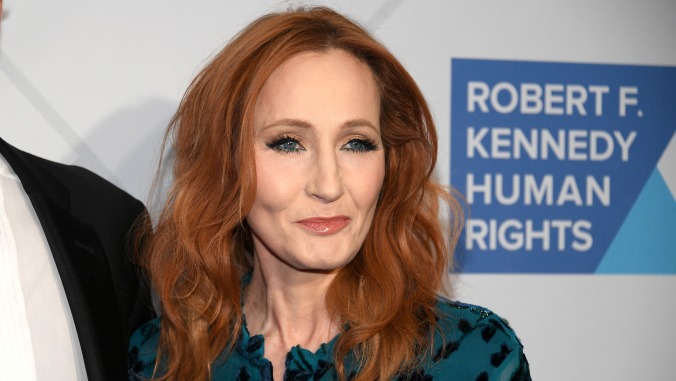Read this: Add the Sorting Hat to the list of things J.K. Rowling is wrong about

The end is in sight, dear reader. 2020 has reached its sunset hours, and, fittingly, most of those hours will be quite literally dark. It’s difficult to imagine that anyone came out of this year unscathed, whether their particular burdens to bear involved the loss of a loved one, the diminishment of their own physical and/or mental health, financial hardship, pervasive loneliness, individual and systemic injustice, the list goes on. Were you to rank the losses of this year, odds are that the inability to deny the transphobia and casual cruelty of one J.K. Rowling wouldn’t crack the top 10—it’s been a bad year, after all—but it would definitely make the list, somewhere between the staggering loss of life (at the top) and the failure of Universal to release the Cats butthole cut (at the bottom). For many, it’s a significant loss, a betrayal of the arguments for empathy, decency, and compassion found in Rowling’s Harry Potter series.
The cognitive dissonance Rowling’s self-righteous, deeply harmful stance engenders has perhaps never been so clearly articulated as it is in “Who Did J.K. Rowling Become?”, a frank yet mournful examination of Rowling’s descent into bigotry from The Cut’s Molly Fischer. We’ll have some thoughts of our own later this week (hint hint: she may just make an appearance on our list of the year’s worst internet things) but Fischer’s clear-eyed piece, brilliantly framed through the lenses of ownership, fandom, power, and authenticity, is just too good to let pass by. It begins with the arrival of The Leaky Cauldron webmistress Melissa Anelli at Edinburgh castle on the eve of the release of Harry Potter And The Half-Blood Prince, the sixth book in the series:
Rowling lived in an ivy-covered Victorian stone mansion set within landscaped gardens, and, like Edinburgh Castle, it was something of a picturesque fortress. After a stalker had taken to showing up at the house, Rowling and her husband had, despite their neighbors’ objections, implemented increasingly strict security measures: first an eight-foot-high wall and an electronic gate, then CCTV security cameras. Anelli and [Emerson Spartz of MuggleNet] were ushered into Rowling’s office, an outbuilding with honey-colored wood and floor-to-ceiling windows.
Rowling arrived: She gave them hugs, and when her husband walked in with their 6-month-old baby, she made introductions all around. Then the family cleared out and the interview began. Anelli and Spartz asked Rowling everything they could about the world she had created. For example, the Sorting Hat — it peers into the thoughts of each new Hogwarts student who arrives, then assigns them to one of four school houses.
“Has the Sorting Hat ever been wrong?” Spartz asked.
“No,” Rowling said, unequivocal.
There’s much to admire about Fischer’s piece, which we encourage you to read in full, but that answer about the Sorting Hat is one of its most potent observations. The final pre-epilogue act in the final book of the series sees the old notions about the Sorting Hat tossed out the window; the surviving students of Hogwarts don’t sit at their designated house tables, they just sit, divisions based on some external assessment of who they were at age 11 set aside at long last. People can be brave and bookish, ambitious and loyal, and they can change and evolve and become better, more empathetic people. The Sorting Hat may never be wrong, but it is also never right. Here’s Fischer again:
“Perplexed” was a common reaction. Rowling had never been a particularly controversial figure. Her books sold hundreds of millions of copies, they inspired films that brought in billions of dollars, and she used the money she made to save children from orphanages. In 2012, she gave enough to charity and paid enough in taxes to knock herself off the Forbes billionaires list. In 2020, she was tweeting links to a store that sold pins that said F*CK YOUR PRONOUNS.
Read another way, though, the latest turn in Rowling’s story looks perhaps less perplexing than inevitable. It is the culmination of a two-decade power struggle for ownership of her fictional world — the right to say what Harry Potter means. The Harry Potter books describe a stark moral universe: Their heroes fight on behalf of all that is good to defeat the forces of absolute evil. Though the struggle may be lonely and hard, right ultimately beats wrong. For fans, when it came to the matter of trans rights, the message of Harry Potter was clear. For Rowling, this was no less the case.
“She absolutely believes that she is right, that she’s on a mission, and that history will eventually bear her out,” Anelli told me. “She thinks she’s doing good work right now.”
So did Dolores Umbridge.
Send Great Job, Internet tips to [email protected]